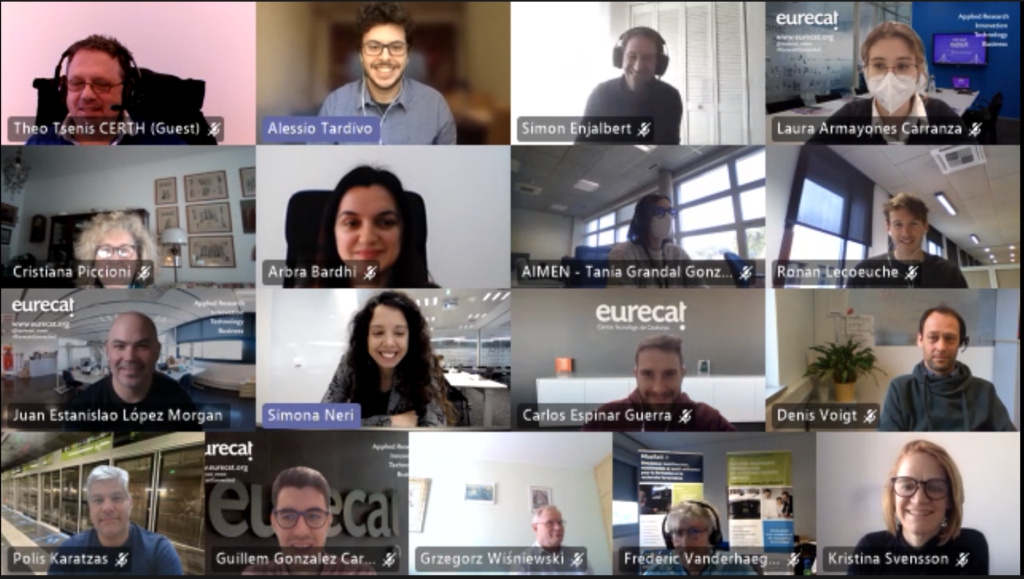The Final Event of the Shift2Rail JU-funded CARBODIN project was held online on the 24th and 25th February with participants from all 13 partners in seven countries.
CARBODIN contributes to enhancing the attractiveness and competitiveness of the European railway system by providing innovative car body, door and interior manufacturing strategies, user-friendly and accessible doors, tools for modular interiors, virtual immersive interior design and novel human-machine interactions for innovative driving cabins.
Simona Neri, the Project Coordinator, welcomed the participants and gave an overview of the project’s progress, with a particular focus on project activities, final results and the exploitation strategy. Javier Ibañez, Shift2Rail JU programme manager presented the Shift2Rail JU programme and how CARBODIN fits into this context. Special attention has been given to the opportunity of presenting the CARBODIN demonstrator at INNOTRANS 2022, to which every interested party is invited. The Work Package- leaders then introduced the 12 WPs, highlighting the objectives and the results achieved in each task.
On the 25th of February, the Consortium interacted with external participants, interested stakeholders and end users to explain how the Consortium plans to carry out the market uptake of the innovative solutions developed within the project. The open event proved to be a valuable forum for discussion of the project results and how to ensure that it will contribute to the success of the European railway system.
The overarching objective of CARBODIN is to improve car body shell manufacture by exploring the possibilities offered by composite materials. To this end, CARBODIN advocates for modular tooling to manufacture a wide range of parts of varying size. In addition, the project proposes a process combining different production techniques, automation concepts and the introduction of co-cured and co-bonded composite parts and multi-material integrated joints and inserts. CARBODIN also tests intelligent sensor nodes to reinforce predictive maintenance.
Composite materials are also the core element of cost-efficient doors with reduced life cycle cost. CARBODIN creates modular tooling processes combined with 3D technology enabling the production of lighter doors with enhanced thermal and acoustic properties.
Another area in which CARBODIN pushes forward the adoption of composite materials is the design of attractive train interiors by developing a configuration tool based on virtual reality. In this context, the project also investigates the best strategies for improving the cost-effectiveness of manufacturing processes, such as integrating low-volt circuits in panels.
Finally, CARBODIN aims to enhance the performance of future human-machine interface systems by means of a European survey to identify key interactions such as drivers’ gestures or voices.
The Final Event was the perfect occasion for looking back at the solutions successfully developed by CARBODIN and to initiate a discussion with the interested stakeholders on the future step to ensure a widespread adoption of these solutions. From CARBODIN, thank you to all the participants.
To find out more about CARBODIN, please visit Zenodo and follow the project on Twitter and LinkedIn.
This project has received funding from the Shift2Rail JU under the European Union’s Horizon 2020 research and innovation programme under Grant Agreement 881814.
For further information, please contact Alessio Tardivo at alessio@eurnex.eu.
